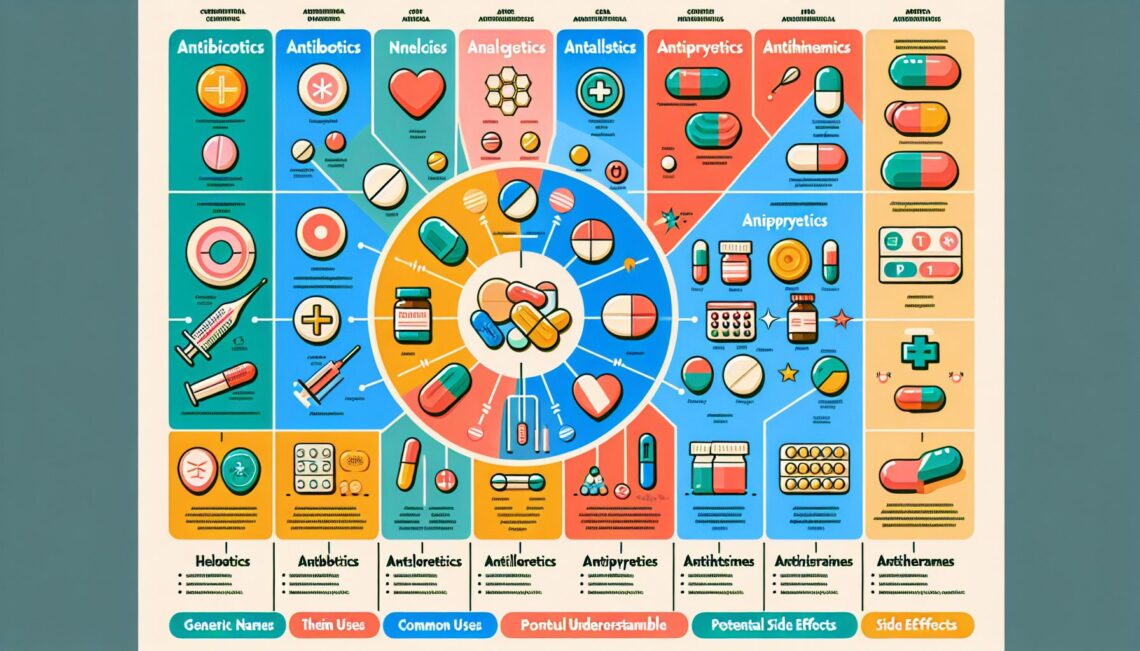
Understanding the Different Types of Medicines
Medicines play a crucial role in our lives, helping to manage and treat various illnesses and conditions. From over-the-counter medications to prescription drugs, there are several different types of medicines available to address our specific healthcare needs. In this article, we will explore the various categories of medicines and their uses, shedding light on the diverse ways they can benefit us.
1. Prescription Medications
Prescription medications are drugs that can only be obtained with a valid prescription from a healthcare professional. These medicines are prescribed based on an individual’s specific diagnosis and medical history. Some commonly prescribed medications include antibiotics, antihypertensives, antidepressants, and painkillers. It is important to follow the dosage instructions and complete the entire course of prescription medications to ensure their efficacy.
2. Over-the-Counter Medications
Over-the-counter (OTC) medications are medicines that are readily available for purchase without a prescription. These medications are generally used to provide relief from common ailments such as headaches, allergies, cold symptoms, and mild pain. Examples of OTC medications include aspirin, ibuprofen, cough syrups, antacids, and allergy relief medications. When using OTC medications, it is crucial to carefully read and follow the instructions, including any recommended dosage limitations or potential side effects.
3. Herbal and Homeopathic Remedies
Herbal and homeopathic medicines are derived from natural sources such as plants, minerals, and animal substances. These remedies have been used for centuries and are believed to promote overall wellness and improve specific health conditions. Examples of herbal remedies include ginseng for energy boost, ginger for digestion, and chamomile for relaxation. While many people find relief from these alternative medicines, it is important to consult with healthcare professionals before use, especially if taking them alongside conventional medications.
4. Supplements and Vitamins
Supplements and vitamins are substances that complement our diets and are available in various forms such as tablets, capsules, powders, and liquids. These products are commonly used to fill any nutritional gaps and promote overall health and well-being. Popular examples include multivitamins, omega-3 fatty acids, probiotics, and vitamin D supplements. However, it is essential to remember that while these supplements can be beneficial, they are not meant to replace a balanced diet or serve as a substitute for prescribed medications.
5. Vaccines
Vaccines are a vital form of preventive medicine designed to protect individuals from infectious diseases. By stimulating the immune system, vaccines help the body recognize and combat specific pathogens, reducing the risk of infection and potentially saving lives. Vaccines play a crucial role in controlling diseases such as polio, measles, influenza, and COVID-19. Keeping up with recommended vaccination schedules is crucial for individuals of all ages to maintain personal and public health.
In conclusion, the world of medicines is vast and diverse, catering to the unique needs of individuals seeking relief, treatment, and prevention. Whether it is a prescribed medication, an over-the-counter solution, an herbal remedy, a dietary supplement, or a vaccine, each type of medicine serves a specific purpose in our healthcare journey. By understanding the different categories of medicines, we can make informed decisions about our healthcare and work together with healthcare professionals to ensure our well-being and quality of life.
You May Also Like

Understanding Different Types of Medicines
December 15, 2023
Exploring the Different Types of Medicines
March 9, 2024

